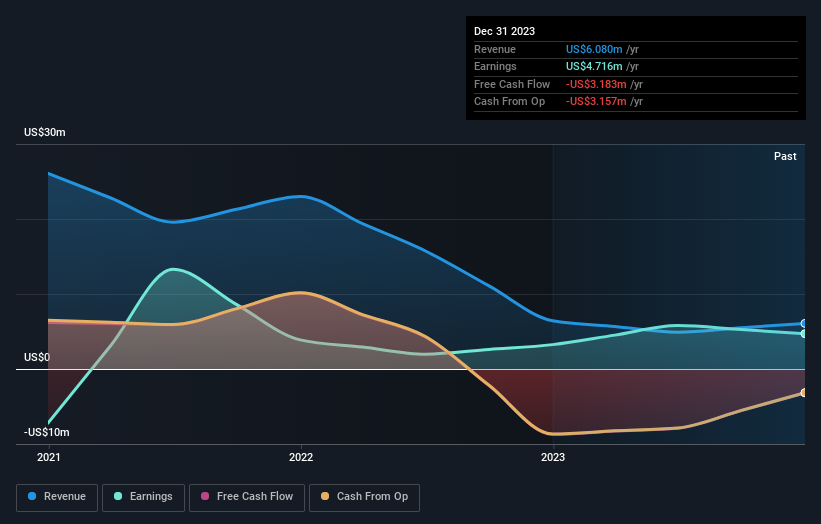With 59% ownership, Chuan Hup Holdings Limited (SGX:C33) insiders have a lot riding on the company's future
Key Insights
Insiders appear to have a vested interest in Chuan Hup Holdings' growth, as seen by their sizeable ownership
Kwee Chim Peh owns 52% of the company
Using data from company's past performance alongside ownership research, one can better assess the future performance of a company
If you want to know who really controls Chuan Hup Holdings Limited (SGX:C33), then you'll have to look at the makeup of its share registry. With 59% stake, individual insiders possess the maximum shares in the company. In other words, the group stands to gain the most (or lose the most) from their investment into the company.
So it follows, every decision made by insiders of Chuan Hup Holdings regarding the company's future would be crucial to them.
Let's take a closer look to see what the different types of shareholders can tell us about Chuan Hup Holdings.
View our latest analysis for Chuan Hup Holdings
What Does The Institutional Ownership Tell Us About Chuan Hup Holdings?
Many institutions measure their performance against an index that approximates the local market. So they usually pay more attention to companies that are included in major indices.
Less than 5% of Chuan Hup Holdings is held by institutional investors. This suggests that some funds have the company in their sights, but many have not yet bought shares in it. So if the company itself can improve over time, we may well see more institutional buyers in the future. When multiple institutional investors want to buy shares, we often see a rising share price. The past revenue trajectory (shown below) can be an indication of future growth, but there are no guarantees.
Chuan Hup Holdings is not owned by hedge funds. Our data suggests that Kwee Chim Peh, who is also the company's Senior Key Executive, holds the most number of shares at 52%. When an insider holds a sizeable amount of a company's stock, investors consider it as a positive sign because it suggests that insiders are willing to have their wealth tied up in the future of the company. In comparison, the second and third largest shareholders hold about 4.1% and 1.0% of the stock. Interestingly, the second-largest shareholder, Siong Woon Peh is also Chief Executive Officer, again, pointing towards strong insider ownership amongst the company's top shareholders.
While studying institutional ownership for a company can add value to your research, it is also a good practice to research analyst recommendations to get a deeper understand of a stock's expected performance. As far as we can tell there isn't analyst coverage of the company, so it is probably flying under the radar.
Insider Ownership Of Chuan Hup Holdings
While the precise definition of an insider can be subjective, almost everyone considers board members to be insiders. Company management run the business, but the CEO will answer to the board, even if he or she is a member of it.
Most consider insider ownership a positive because it can indicate the board is well aligned with other shareholders. However, on some occasions too much power is concentrated within this group.
It seems that insiders own more than half the Chuan Hup Holdings Limited stock. This gives them a lot of power. So they have a S$98m stake in this S$164m business. It is good to see this level of investment. You can check here to see if those insiders have been buying recently.
General Public Ownership
The general public-- including retail investors -- own 38% stake in the company, and hence can't easily be ignored. While this size of ownership may not be enough to sway a policy decision in their favour, they can still make a collective impact on company policies.
Next Steps:
I find it very interesting to look at who exactly owns a company. But to truly gain insight, we need to consider other information, too. Be aware that Chuan Hup Holdings is showing 2 warning signs in our investment analysis , and 1 of those doesn't sit too well with us...
Of course this may not be the best stock to buy. So take a peek at this free free list of interesting companies.
NB: Figures in this article are calculated using data from the last twelve months, which refer to the 12-month period ending on the last date of the month the financial statement is dated. This may not be consistent with full year annual report figures.
Have feedback on this article? Concerned about the content? Get in touch with us directly. Alternatively, email editorial-team (at) simplywallst.com.
This article by Simply Wall St is general in nature. We provide commentary based on historical data and analyst forecasts only using an unbiased methodology and our articles are not intended to be financial advice. It does not constitute a recommendation to buy or sell any stock, and does not take account of your objectives, or your financial situation. We aim to bring you long-term focused analysis driven by fundamental data. Note that our analysis may not factor in the latest price-sensitive company announcements or qualitative material. Simply Wall St has no position in any stocks mentioned.

 Yahoo Finance
Yahoo Finance 

